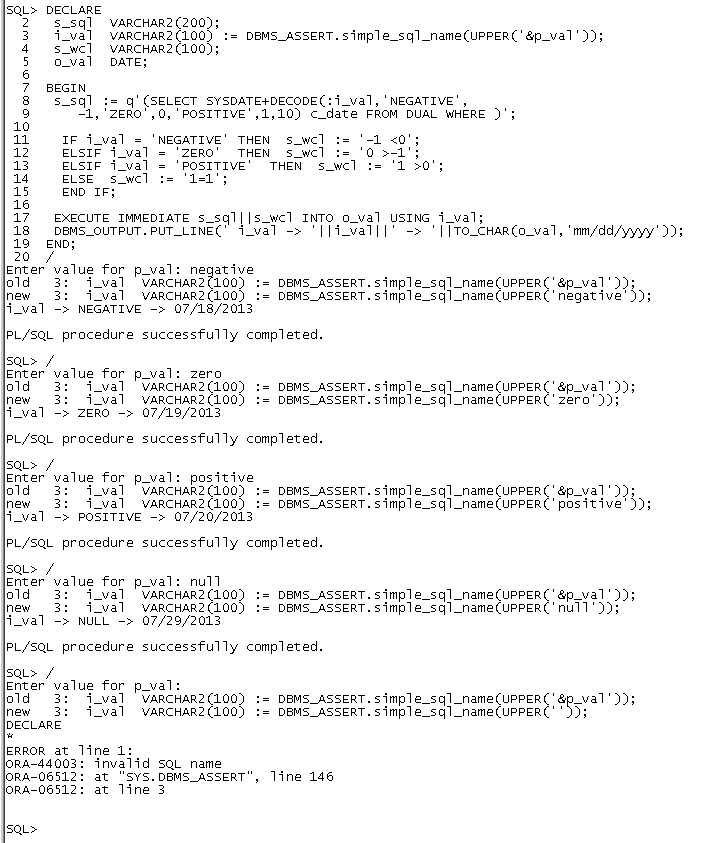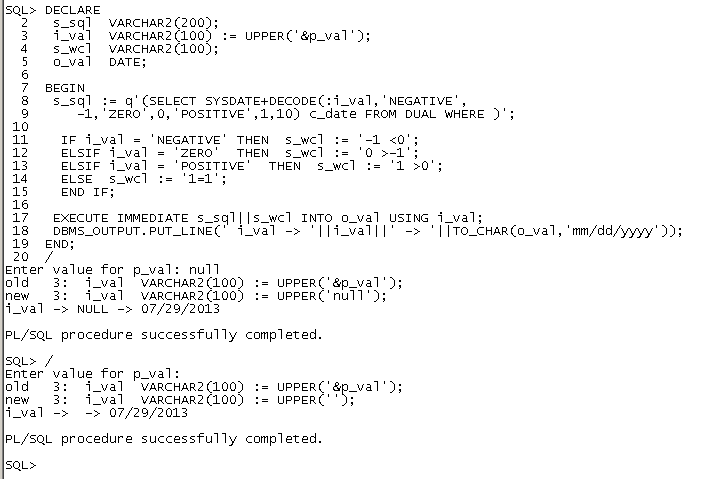|
DECLARE
|
|
s_sql VARCHAR2(100);
|
|
i_val VARCHAR2(100) := DBMS_ASSERT.simple_sql_name(UPPER('&p_val'));
|
|
s_wcl VARCHAR2(100);
|
|
o_val DATE;
|
|
BEGIN
|
|
s_sql := q'(SELECT SYSDATE+DECODE(:i_val,'NEGATIVE',
-1,'ZERO',0,'POSITIVE',1,10) c_date FROM DUAL WHERE )';
|
| |
|
IF i_val = 'NEGATIVE' THEN s_wcl := '-1 <0';
|
|
ELSIF i_val = 'ZERO' THEN s_wcl := '0 >-1';
|
|
ELSIF i_val = 'POSITIVE' THEN s_wcl := '1 >0';
|
|
ELSE s_wcl := '1=1';
|
|
END IF;
|
| |
|
EXECUTE IMMEDIATE s_sql||s_wcl INTO o_val USING i_val;
|
|
DBMS_OUTPUT.PUT_LINE(' i_val -> '||i_val||' -> '||TO_CHAR(o_val,'mm/dd/yyyy'));
|
|
END;
|
|
/
|


